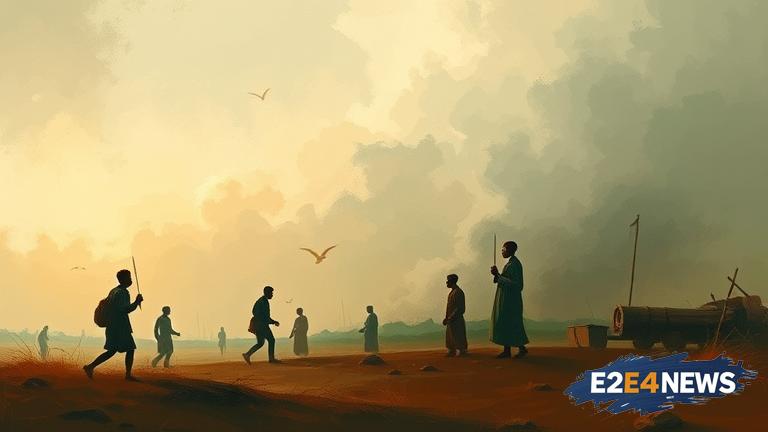Nigeria, a country with a complex and tumultuous past, is embarking on a journey of reconciliation and reform. The path to true reconciliation is not an easy one, but it is a necessary step towards healing and moving forward. For decades, Nigeria has been plagued by conflict, corruption, and social unrest, leaving deep scars on the nation and its people. However, in recent years, there has been a growing recognition of the need for reconciliation and reform. This shift in mindset is driven by a desire to address the root causes of the country’s problems and to create a more just and equitable society. The journey to reconciliation is not just about addressing past injustices, but also about building a better future for all Nigerians. It requires a willingness to confront the truth, to listen to each other’s stories, and to work towards a common goal. One of the key steps towards reconciliation is acknowledging the past and taking responsibility for the harm that has been done. This involves recognizing the historical injustices that have been perpetrated against certain groups, such as the Igbo people, and working to address the ongoing legacies of these injustices. It also involves acknowledging the role that corruption and bad governance have played in perpetuating poverty and inequality. Another important step is to establish a truth and reconciliation commission, which can provide a platform for victims to share their stories and for perpetrators to acknowledge their wrongdoing. This can help to promote healing and closure, and can also provide a basis for holding those responsible for human rights abuses accountable. In addition to these efforts, there is also a need for institutional reform, including reforms to the country’s electoral system, its judiciary, and its security agencies. These reforms can help to promote transparency, accountability, and the rule of law, and can also help to reduce the risk of future conflicts. Furthermore, there is a need for economic reform, including efforts to promote economic growth, reduce poverty, and address inequality. This can involve investing in education, healthcare, and infrastructure, as well as promoting entrepreneurship and job creation. The journey to reconciliation is not just about the government, but also about civil society and the private sector. It requires the active engagement and participation of all stakeholders, including community leaders, religious leaders, and business leaders. It also requires a commitment to transparency, accountability, and good governance, as well as a willingness to listen to and learn from each other. In conclusion, Nigeria’s path to true reconciliation is a long and difficult one, but it is a necessary step towards building a more just and equitable society. It requires a willingness to confront the truth, to listen to each other’s stories, and to work towards a common goal. With the right mindset and the right strategies, Nigeria can overcome its challenges and build a brighter future for all its citizens. The country’s diverse culture and rich history are a source of strength and inspiration, and its people are resilient and determined. With patience, persistence, and a commitment to reconciliation and reform, Nigeria can become a beacon of hope and stability in the region. The international community can also play a role in supporting Nigeria’s journey to reconciliation, by providing technical assistance, financial support, and diplomatic engagement. This can help to promote peace, stability, and prosperity in the region, and can also help to address the root causes of migration and extremism. Ultimately, Nigeria’s journey to reconciliation is a journey that requires the active engagement and participation of all stakeholders, including government, civil society, and the private sector. It is a journey that requires patience, persistence, and a commitment to transparency, accountability, and good governance. But with the right mindset and the right strategies, Nigeria can overcome its challenges and build a brighter future for all its citizens.
